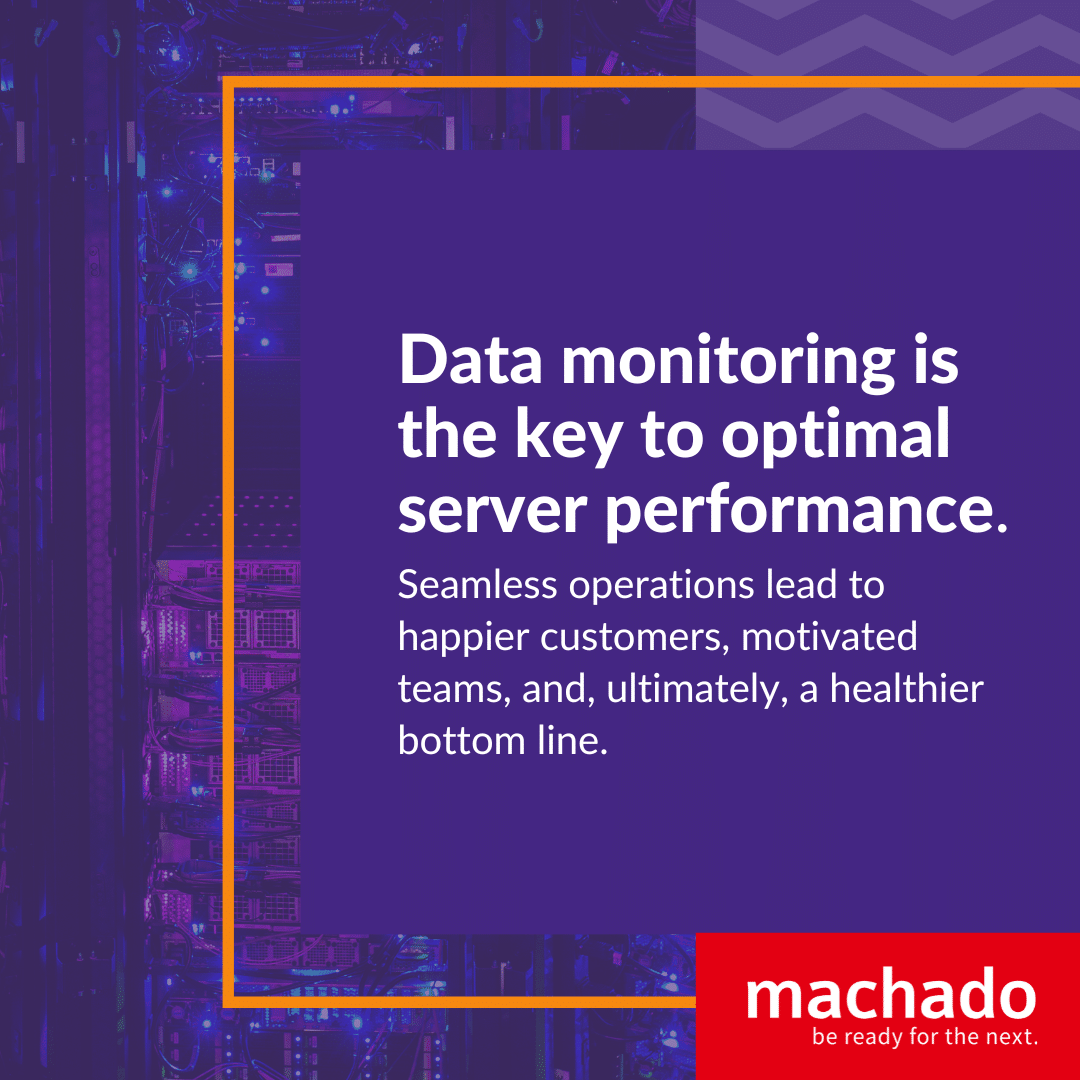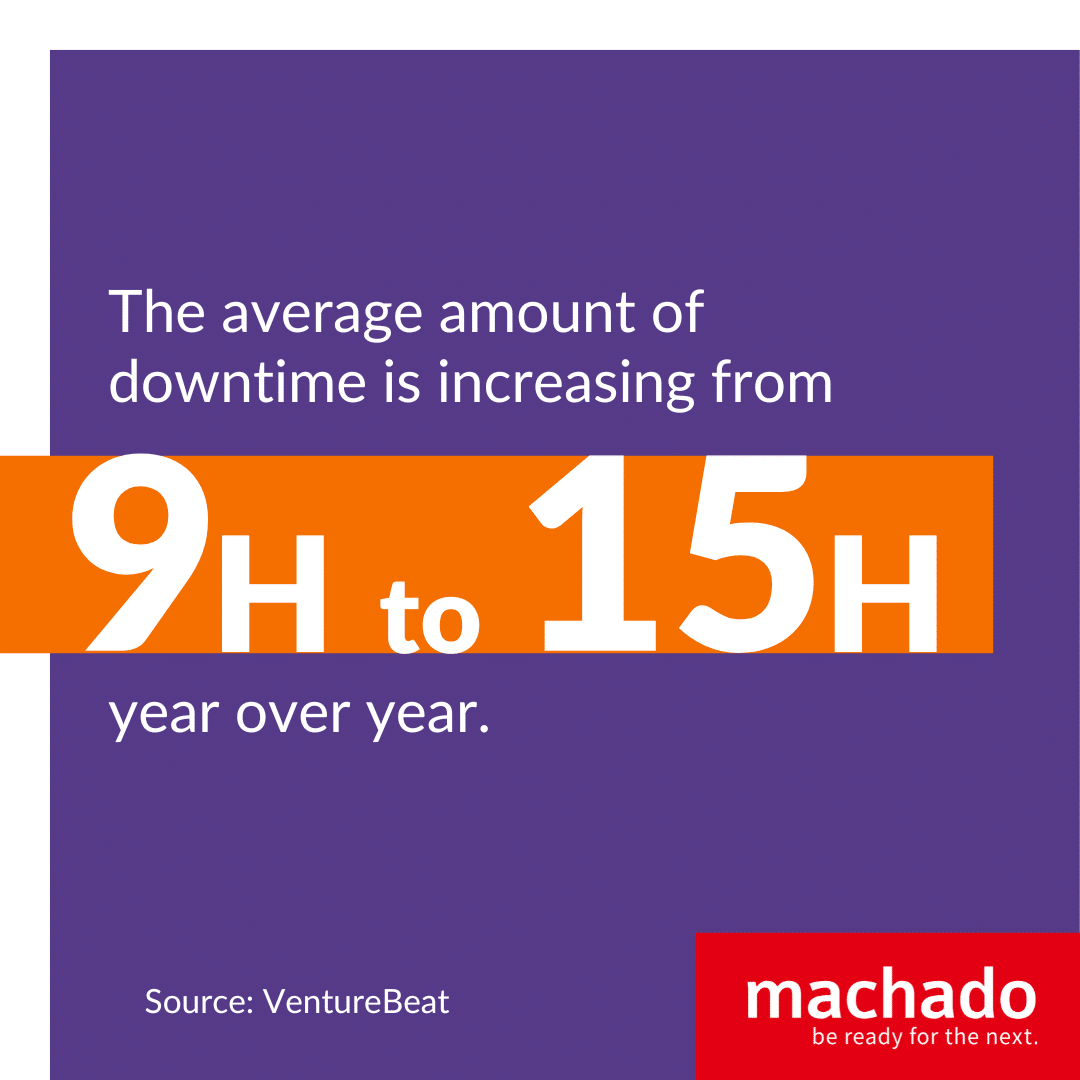TL;DR: The safeguarding of valuable information is critical to your business. Database monitoring tools offer a powerful defense against potential threats. This comprehensive blog takes you through their incredible features, real-world applications, and implementation strategies.
Database Monitoring Tools: Safeguarding Industries
Data is the driving force behind every decision, strategy, and success story.
For small to medium businesses (SMBs), the reliance on data has never been greater.
However, with this increased dependence comes the heightened responsibility of ensuring your database’s security and integrity.
Just this year, state governments got hit by a cyber attack.
The incident affecting millions highlights a critical lesson for small and medium-sized businesses: even a minor slip in data security can lead to major financial losses and tarnish a company’s reputation. With state governments already keeping a close watch, it’s clear that for your business, the stakes are high when it comes to protecting sensitive information.
In your line of work, it’s all about trust, right?
Your customers are handing over their sensitive information with the expectation that it’s locked down tight.
If there’s even a hint that it’s not as secure as Fort Knox, they’re out the door.
It’s non-negotiable.
That’s why you can’t play games when it comes to your business’s data security.
Here’s the thing: database monitoring tools are the superheroes in this story. They’re like a high-tech guardhouse, keeping watch 24/7 for any sneaky bugs or breaches that might try to worm their way in.
And guess what?
Professional Services Firms that arm themselves with these tools aren’t just surviving; they’re actually killing it. These tools are the secret sauce helping them thrive, and I’m talking about across the board—every industry you can think of.
For accounting firms, imagine it’s tax season, the busiest time of the year, and their clients’ financial data is like gold. Database monitoring tools help them keep an eagle eye on this precious data. If something looks off, like an unusual access pattern that could signal a breach, they catch it early. This means they avoid the huge headache of data theft, which could not only cost them big bucks but also their reputation.
For healthcare firms, patient confidentiality is the name of the game. These tools act like a bodyguard for patient records. They track who’s peeking at what and when, ensuring that only authorized eyes are viewing sensitive health info. This way, they sidestep the pain of privacy violations and the legal nightmares that can follow.
Lastly, for financial firms, it’s all about staying ahead of the curve in a world where cyber threats evolve daily. These tools are their lookout, spotting suspicious activity that could indicate a cyberattack in progress. By intercepting these threats before they blow up, they avoid the agony of financial loss and the trust issues that would inevitably come with it.
In each case, database monitoring tools are the unsung heroes, helping these firms avoid the pain points unique to their industry and keeping them sailing smoothly.
And with 88% of surveyed companies utilizing data monitoring tools for advanced decision making, you should explore database monitoring tools and how they’re revolutionizing sectors one byte at a time.
With help utilizing these tools from a Proactive Managed Service Provider, optimization of data monitoring becomes the logical next step.
At Machado, we consider the security of your data as our top priority. In this blog, we’re excited to pull back the curtain and give you a glimpse into the state-of-the-art database monitoring tools and practices we employ on behalf of our clients.
Database monitoring tools are at work around the clock, providing defense against data threats and vulnerabilities. By constantly scanning and analyzing data patterns, they ensure that your information remains secure and private.
We believe it’s not just about offering services but also about delivering peace of mind. Our valued clients know that when they trust us with their sensitive information, they’re getting the gold standard of data protection that leading companies expect and deserve.
Continue on for a look at how we tackle Database Monitoring.
Harnessing the Power of Database Monitoring Tools for Industry Success
What is the role of your database monitoring tools?
Think about the vast amount of data your business processes daily.
Every transaction, every customer interaction, every minute detail recorded—it’s staggering, isn’t it?
Data as a Valuable Asset:
Your data is like gold in a vault. It’s not just numbers and figures; it’s insights, strategies, and the backbone of your decisions. How many times have you relied on past data to forecast future trends? Or analyzed sales data to tailor your next marketing campaign? Data is intertwined with the DNA of your operations.
Preventing Data Breaches:
Ever experienced that sinking feeling when a software glitch exposes sensitive data?
Or heard horror stories about competitors getting their hands on vital company secrets? With the rise of cyber threats, your data vault needs more than just a lock; it needs data monitoring.
Database monitoring serves as a security alarm for your data, ensuring peace of mind and trust among your stakeholders.
Ensuring Operational Efficiency:
Time is money.
Delays caused by data issues can be costly. Remember that time when a server lag slowed down your operations, or when you had to wait hours for a critical report?
With effective database monitoring tools, such hiccups become anomalies rather than norms.
Data monitoring is the key to optimal server performance. Seamless operations lead to happier customers, motivated teams, and, ultimately, a healthier bottom line.
The tools at our disposal today are game-changers.
But it’s not just about having them; it’s about understanding their value and integrating them effectively into our day-to-day lives. Explore the features and tools that can truly transform your approach to data.
Now that we’ve established the crucial role of database monitoring, it’s essential to understand what makes a good database monitoring tool. After all, not all tools are created equal.
As we transition into the features and functionalities to look out for, think about your own business’s needs and how the right data monitoring tool can protect your business.
Features to Look for in Database Monitoring Tools
Choosing the right database monitoring tool can feel like finding a needle in a haystack. By focusing on a few key features, you can zero in on a solution that aligns with your unique needs, and be able to select the best database monitoring tool.
Real-time Alerts:
Imagine driving a car with a delay in the brake response; scary, right?
The same goes for managing data. Immediate notifications for unusual activities are crucial. You want a system that instantly informs you of potential threats, giving you the upper hand in nipping issues in the bud.
Ease of Integration:
There’s no point in having a state-of-the-art monitoring tool if it doesn’t play well with your existing systems. A good tool should seamlessly integrate with your current infrastructure, acting like a well-oiled cog in a machine, rather than a wrench thrown into the works.
Scalability:
Your organization grows, evolves, and so does the amount of data you handle. Sticking with a data monitoring tool that’s rigid and stagnant is like using a flip phone in the age of smartphones. While others may be stuck in reactive modes, struggling to keep up, a Proactive MSP like Machado thrives by anticipating growth and preparing for it.
The tool you choose should not just grow with you but be one step ahead, flagging potential issues before they become real problems. This proactive approach means smooth sailing in the future, free from unexpected system overloads and the subsequent operational hiccups. It’s about ensuring that you’re not just keeping up, but setting the pace in your industry.
User-Friendly Dashboards:
Data, in its raw form, can be overwhelming. A cluttered interface can lead to missed alerts or incorrect data interpretation. A user-friendly dashboard that presents data in a clear, concise manner is vital. It should empower even the less tech-savvy members of your team to interpret data and act accordingly.
Identifying a tool with these features is your ticket to not only safeguarding your data but also optimizing its use for strategic growth. In the next section, we’ll introduce you to some leading tools that excel in these areas.
Now that we’ve explored the essential features to seek in database monitoring tools, the spotlight turns to implementation.
It’s one thing to have the right tools at your disposal, but making the most of them is another challenge altogether.
Ensuring that your chosen monitoring tools seamlessly integrate into your operations is essential. From training and onboarding to the importance of regular audits, these insights will empower you to harness the full potential of your data protection arsenal.
Implementing Database Monitoring Tools: Strategies for Success
It’s important to recognize that the true value of database monitoring tools lies not only in having them but in how they are effectively deployed within you.
These tools are not standalone solutions but rather integral components of your data security strategy. They empower you to detect and respond to threats, anticipate vulnerabilities, and optimize your data management.
As we explore these 4 strategies, keep in mind that the goal is to ensure that your chosen data monitoring tools seamlessly integrate into your operations, improving your data security.
Comprehensive Training:
Develop tailored programs covering basics to advanced features. Ensure that your team members have a solid grasp of how the tools work. Learning how to create a database, and having it monitored will allow you to create a more comprehensive training plan with insider knowledge, coupled with a Proactive MSP, your employees will be well versed within the database, and while using database monitoring tools.
Hands-On Learning:
Practical experience builds confidence and competence. Encourage your team to engage in hands-on training sessions where they can practice using the tools in a controlled environment.
User Support:
The average amount of downtime is increasing from 9 hours to 15 hours year over year according to this report. Establish a helpdesk for prompt assistance. Having a support system in place allows team members to seek assistance and clarification, ensuring that your team can use the tools effectively without unnecessary roadblocks.
Continuous Learning:
Encourage a culture of staying updated with the latest developments in data security and tool functionalities; staying informed is essential for maintaining data security.
Equipping your team with knowledge and skills is essential for maximizing the benefits of your monitoring tools. Proactive MSPs can provide guidance and expertise where needed to improve your team’s capabilities beyond reactionary measures.
- Regular Audits and Maintenance: Understand the significance of conducting periodic audits to ensure that the monitoring tools are functioning optimally. Routine maintenance and updates are key to keeping your data protection strategy up to date. Staying up to date with IT tips will keep your business performing with little to no downtime.
- Feedback Loops: Explore the benefits of collecting feedback from users and incorporating it into the continuous improvement of your monitoring tools and data security strategies.
It’s time to shift our focus to another integral element of implementing database monitoring tools effectively—regular audits. While equipping your team with the right knowledge and skills is essential, ensuring that these tools continue to function optimally requires ongoing evaluation.
The Importance of Regular Audits
Effective database monitoring doesn’t end with implementation; it requires continuous evaluation to maintain optimal functionality and security. Regular audits play an important role in this ongoing process. Here’s why they are essential:
Identifying Vulnerabilities and Anomalies:
Regular audits allow you to identify vulnerabilities and anomalies in your data infrastructure promptly.
By conducting thorough assessments at predetermined intervals, you can spot potential weaknesses before they can be exploited by malicious actors.
Ensuring Compliance:
Many industries are subject to regulatory requirements governing data security and privacy. Regular audits help ensure that your data management practices remain compliant with these regulations. This not only helps you avoid legal repercussions but also creates trust among your clients and partners.
Optimizing Tool Performance:
Beyond identifying vulnerabilities, audits help optimize the performance of your database monitoring tools. By reviewing their configurations and performance logs, you can fine-tune settings and maximize their effectiveness in threat detection and prevention.
Continuous Improvement:
Audits are not just about identifying problems; they’re about driving continuous improvement. The US Commerce saw that 84% of small businesses who increased their use of technology platforms to at least 6, received a 65% boost in profits in this report. The insights gained from audits can inform strategic decisions and lead to optimizing your overall data security strategy.
Regular audits are the proactive approach to data security, ensuring that your data remains secure, your operations comply with regulations, and your tools perform at their best.
Proactive Data Security for Your Success
We’ve uncovered the importance of safeguarding your data. Data isn’t just information—it’s the lifeblood of your operations and decision-making.
We began by recognizing that data is a valuable asset, and database monitoring tools give us a vital shield against potential breaches, ensuring uninterrupted operations.
We highlighted key features to consider in the best monitoring tools of 2023 and introduced exciting solutions coming in 2024.
Our journey extended to implementing these tools effectively through comprehensive training, user support, and regular audits.
These proactive measures are essential for maintaining data security, compliance, and data monitoring tool optimization.
Safeguarding your data is a proactive pursuit that can redefine your data security strategy. Consider the expertise of a Proactive Managed Service Provider (MSP) like Machado to stay ahead of threats and strengthen your data protection. Your data’s security is a cornerstone of your success.
Download our guide to learn how you can get more done with your current IT staff.Be Ready for the Next IT Opportunity







